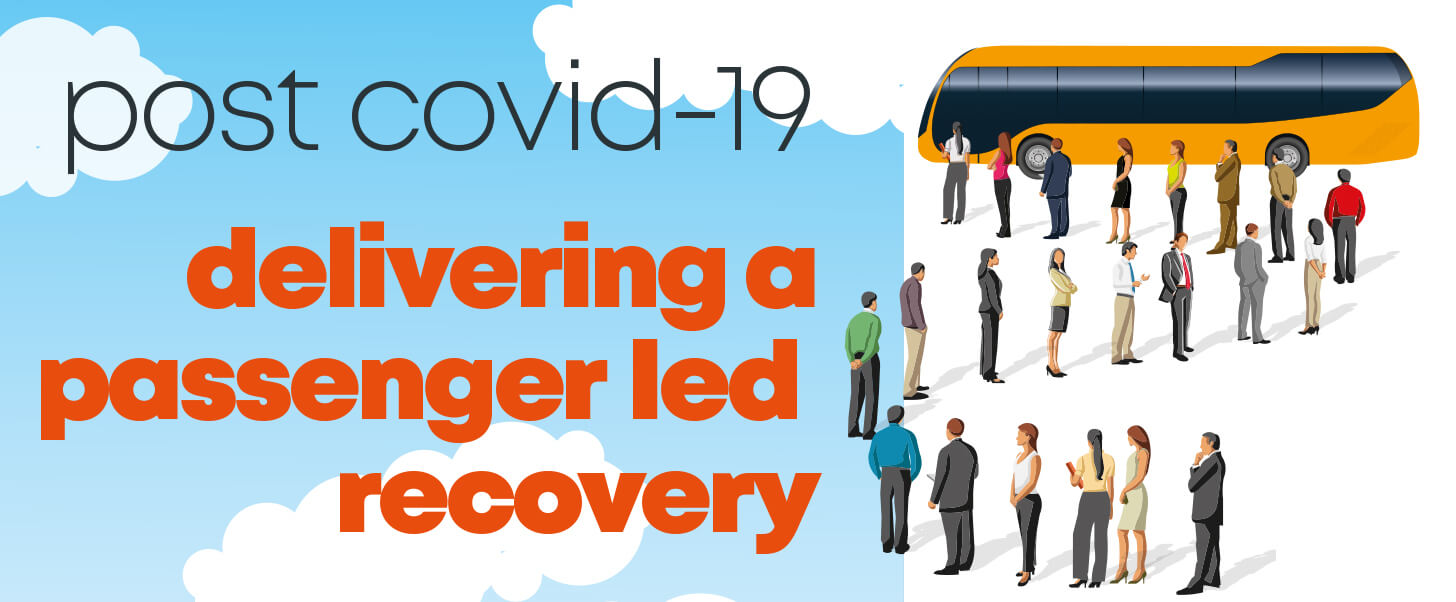New agile agreements between bus operators and local authorities could help transform services for passengers after the Covid-19 pandemic, the bus industry has said, highlighting that it is expected to accelerate changes in working and travel patterns, meaning business as usual will not be enough to ensure that post pandemic, passengers have a network which meets their needs.
Bus passengers are almost twice as likely to have returned than passengers using other public transport, says the CPT, demonstrating the importance of bus travel to the nation’s recovery. Looking beyond the pandemic, the organisation says that getting more passengers back on the bus will help get people back into work, rejuvenate town and city centres and help meet air quality and net zero carbon targets as the country seeks to recover from Covid-19.
Recovery Partnerships, which would only be entered into once the current support CBSSG mechanism ends, will build on the positive relationships established between operators and local authorities during the pandemic. The Partnerships would enable them to agree how to deliver a bus network that meets the needs of passengers and delivers sustainable growth in passenger numbers.
Any Recovery Partnership would be supported with funding from central government and will need to be supported by other initiatives to help get people back onto the bus. These include a government and industry backed marketing campaign and at least £1.2bn of investment in bus priority measures to speed up journey times.
Initiatives put in place would be decided locally but could include:
- Funding to get new services off the ground;
- Support for existing valuable links which aren’t viable in the short term with the aim of making them commercial where possible;
- Bus priority measures to make journeys more reliable for the long term giving people the confidence to travel by bus, and;
- Targeted fare initiatives to encourage people to give bus a go.
CPT Chief Executive Graham Vidler said: “Buses remain fundamental to millions of people’s daily lives. As we recover from the pandemic we will need to review and reset services to meet the needs of passengers as people go about their lives differently.
“Recovery Partnerships will deliver the local flexibility to allow tailored solutions and sustained improvements for passengers and ensure that bus networks continue to play a central role in delivering thriving communities and helping people live healthier lifestyles.”
To deliver Recovery Partnerships CPT is calling for £500m to be allocated for their implementation in 2021-2022 in the forthcoming Spending Review and for it to be ring fenced.
Graham continued: “By having the funding for Recovery Partnerships ready to go we can ensure that passengers have the services they need to get back to work, help rejuvenate high streets and deliver a green recovery.”
The CPT highlighted that it is important that Recovery Partnerships are delivered at the right time. Too soon, it says, risks being unable to deliver the networks passengers need and too late means public funds being spent on supporting schemes which are no longer required and a delay to delivering the services passengers need.
It says that there are three tests which need to be met before recovery partnerships are implemented: a pro-public transport message from government; the removal of social distancing, and; passenger numbers to have returned in sufficient numbers.The CPT expects the Partnerships will typically last 12 to 24 months, and parties could agree a time-limited extension after that time if agreed necessary, although circumstances will differ by location. It believes that all local transport authorities should be required to work up proposals with local bus operators in order to access the funding which will be made available to Recovery Partnerships.
The CPT’s new briefing document Post Covid-19: Delivering a Passenger-Led Recovery is available at www.cpt-uk.org/_uploads/attachment/5228.pdf

